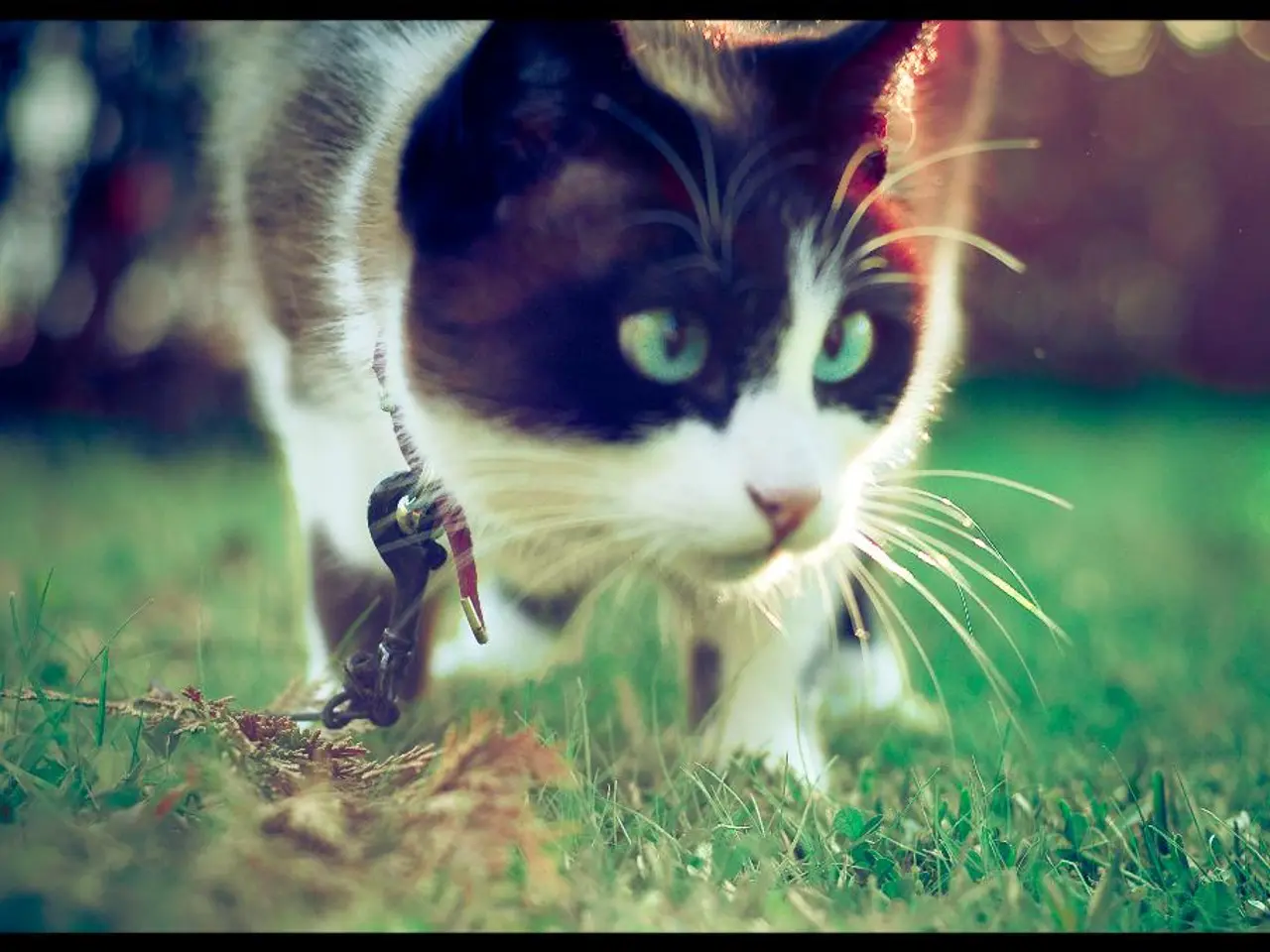Grass consumption by felines and canines: an exploration of reasons
Why Do Pets Eat Grass? A Comprehensive Look at a Mysterious Behaviour
Pets, both cats and dogs, have been observed munching on grass for centuries, but the reasons behind this behaviour remain a topic of interest for pet owners and researchers alike. In this article, we delve into the various theories and findings regarding this intriguing behaviour.
Grass-Eating: More Than Just a Snack
Contrary to popular belief, grass-eating in pets does not solely serve a nutritional purpose. Instead, it appears to serve multiple functions, including aiding digestion, relieving mild stomach upset, supplementing fiber and certain nutrients, and even satisfying behavioural or instinctual needs.
Digestive Aid and Vomiting Inducer
Eating grass can help pets with upset stomachs. The grass blades may tickle their throat or stomach lining, prompting vomiting that can expel whatever is causing discomfort. However, research shows that sickness accounts for only a small percentage of grass-eating cases.[^1][^5]
Nutrient and Fiber Supplementation
Grass contains some vitamins and minerals, such as folic acid, and fiber that might help digestion. Some dogs may eat grass to make up for dietary deficiencies or to add more plant material to their diet, especially if commercial food doesn't fully meet their individual needs.[^2][^3][^5]
Instinct and Behaviour
Grass-eating can be instinctual, inherited from wild ancestors who consumed plant matter indirectly through prey or scavenging. It may also satisfy a craving for variety or enrichment, alleviating boredom.[^1][^2][^5]
A Word of Caution
While grass-eating is generally harmless, it's essential for pet owners to ensure the grass is free of pesticides, herbicides, and toxic plants. Some pet owners provide safe alternatives like oat or wheat grasses.[^3]
Theories and Questions Remain
Despite numerous studies, there is no one definitive reason for grass-eating behaviour in cats and dogs. Research suggests that sickness may account for only a small percentage of times cats and dogs eat grass.[^4] Some scientists propose that pets consume grass for micronutrients like B vitamins, but this is unlikely for most pets on a well-balanced diet unless they have underlying health issues.[^5]
The Future of Grass-Eating Research
Scientific studies on grass eating in cats and dogs are relatively scarce due to a lack of funding. However, ongoing research continues to shed light on this fascinating behaviour, helping us better understand our pets and their unique quirks.
[^1]: Live Science, 2025 [^2]: Top Dog Tips, 2025 [^3]: Tractive, 2025 [^4]: Tractive, 2025 [^5]: Various sources, 2025
Pets may indulge in grass-eating to supplement certain nutrients and fiber, especially when their commercial diet doesn't fully meet their requirements. Additionally, exploring health-and-wellness trends outside of traditional pet diets, such as incorporating science-backed plant-based alternatives like oat or wheat grasses, could potentially improve pets' lifestyles.




